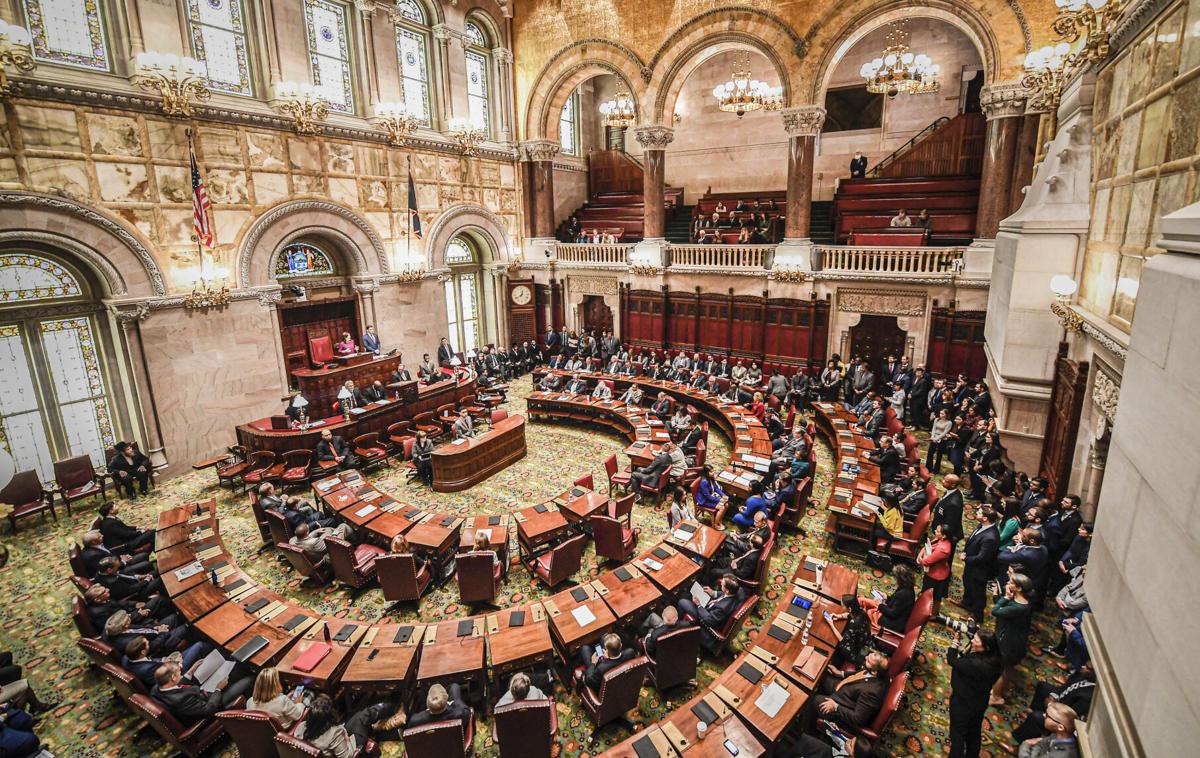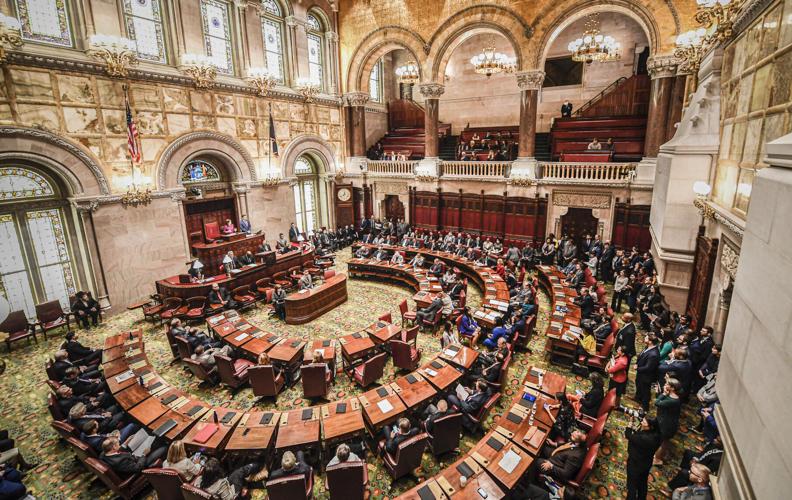The New York State Catholic Conference, which is the official voice of the Catholic Church in the Empire State, issued 13 reasons why the Medical Aid in Dying Act should be rejected. Here are the 13 reasons:
1. The American Medical Association strongly opposes: “Physician-assisted suicide is fundamentally incompatible with the physician’s role as healer, would be difficult or impossible to control, and would pose serious societal risks.”
2. This legislation promotes and normalizes suicide at the very same time the state spends millions of dollars to prevent suicides. No matter how hard the advocates try to avoid the word, this is by any definition a program to promote suicide, which virtually every public health authority calls a major public health problem.
3. The Centers for Disease Control says suicide was the second-leading cause of death among adolescents (ages 12-17) across the United States in 2020, and 22% of high school students seriously considered attempting suicide in 2021.
People are also reading…
4. Advocates say their bill is only for “mentally competent” people. But the law they want doesn’t require a mental health evaluation, even though public health experts treat suicide as a mental health crisis. Doctors would not be required to find out if the patient has ever contemplated or attempted suicide before, or if they’ve ever been treated for depression, paranoia, dementia, anxiety or any mental health condition.
5. In Oregon, which New York advocates point to as the model, patients are rarely — if ever — referred for psychiatric exams. Of the 1,167 suicide prescriptions written in 2023 and 2024, only six were referred. That’s 0.5%, or one half of 1%. (Source: Oregon Health Department.)
6. Doctors prescribing the suicide drugs don’t need to see a patient in person. Visits could be via Zoom.
7. The suicide doctor doesn’t even have to be your regular physician and probably isn’t. In Oregon last year, half of the suicide prescriptions were written by doctors who had been working with the patient for five weeks or less.
8. The national group Death With Dignity advises patients to “ask any doctor … even your dermatologist” to write a suicide prescription. Last year in Oregon, one doctor alone wrote 84 prescriptions — 14% of the total.
9. Across the country and in Canada, advocates have pushed for expansion of initial laws, chipping away at supposed “safeguards.” Six of the 10 states where doctor-assisted suicide is legal have subsequently broadened it. States have opened the law up to non-residents, permitted non-doctors to write prescriptions and, in California, legislation was introduced to expand it to include dementia patients.

The Rev. Frank Lioi
10. While the New York bill says this will only be for “terminally ill” patients, Canada said the same thing until its law was expanded to include people with “chronic” but not terminal illnesses (e.g., arthritis). In 2027, the Canada law is set to expand to include people suffering from dementia, depression, anxiety and other mental illnesses.
11. In 2022 alone, 2,264 Canadians used “aid in dying” to end their lives because of loneliness, and another 323 did so when they were unable to access palliative care, while 196 did it after they could not obtain disability support.
12. Advocates say the state can evaluate the program but that’s impossible, as the legislation requires doctors to falsify death certificates by requiring a person’s underlying illness to be listed as the cause of death and not the lethal dose of chemicals the doctor prescribed. Under any other circumstances, this would be a crime under the state’s penal law. Because death certificates are falsified, no one could ever know how many people took their own lives under this program or even if the rules were followed.
13. If you asked New Yorkers to list the top 20 issues that they want lawmakers to address, this would not make the list. Outside of a small, well-funded and very loud niche group, New Yorkers are not calling for this.
After the passing of the Medical Aid in Dying Act in both the state Assembly (Bill A136) and the Senate (Bill S138), it has gone to Gov. Kathy Hochul for the final decision to approve or veto the bill.
The state Catholic Conference of bishops is strongly urging a call to action to contact Gov. Hochul to veto the bill. Given her strong championing of suicide prevention, one would hope that the governor would veto this bill for state-sanctioned physician-assisted suicide.
Terminally ill New Yorkers would have the legal ability to end their own lives with pharmaceutical drugs under a bill that's been approved by the New York state Legislature. The state Senate gave the proposal final approval on Monday night. It now moves to the governor’s office. The bill would allow a person with an incurable illness to be prescribed life-ending drugs if he or she requests the medication and gets approval from two physicians. Eleven other states and Washington, D.C., have laws allowing medically assisted suicide.
The Very Rev. Frank E. Lioi is pastor of St. Mary’s Church, SS. Mary & Martha Parish (St. Francis and St. Hyacinth churches in Auburn) and Our Lady of the Snow Parish (St. Joseph Church in Weedsport and St. Patrick Church in Cato), and dean of the East Region (Cayuga and Tompkins counties) of the Roman Catholic Diocese of Rochester. He can be reached at fr.frank.lioi@dor.org.

















